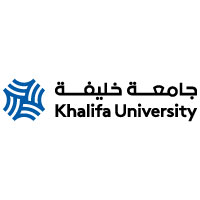Khalifa University of Science and Technology (KU) is an independent, non-profit,
coeducational institution originally established in 2007 as part of an Abu Dhabi government
initiative and expanded in 2017 through the merger of KU with the Petroleum Institute and
Masdar Institute. The university is dedicated to the advancement of learning through
teaching and research and the discovery and application of knowledge. It endeavors to be
an internationally recognized research university, with a world class reputation for
interdisciplinary teaching and research and a tradition of partnering with leading
international academic institutions. The rapidly growing university community is comprised
of faculty and staff from over 40 countries and offers students a culturally rich and diverse
educational environment. KU currently offers 13 undergraduate programs, 22 graduate and
7 PhD degree programs. As a research-based institution, KU is home to a number of
research centers and institutes. The research priorities currently include: • Clean and
Renewable Energy • Hydrocarbon Exploration & Production • Water and Environment •
Healthcare • Aerospace • Supply Chain Logistics • Advanced Materials & Manufacturing •
Robotics, AI and Data Science • Information and Communication Technologies • Security
The University actively produces regionally relevant research that is vital to the UAE’s most
strategic sectors and industries and graduates a growing number of UAE nationals to
sustainably develop emerging industries. The University is also aligned closely with
government initiatives and actively participates in national competitions to promote skills and
innovation in key areas such as e-government, e-learning, healthcare, energy and
aerospace. KU also has extensive global links to international institutions, agencies and
organizations that enable appropriate benchmarks with international standards in higher
education, research and innovation. The University insists on the highest world class
standards of academic excellence in all that it does. It complements other universities in the
region by providing, in its chosen areas of activity, the best teaching and research available
in the region.
